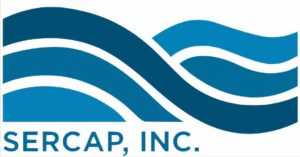CAIC program gives growth-ready local producers tools and resources to scale their businesses
(Easton, Maryland, August 2, 2023). The Chesapeake Ag Innovation Center (CAIC) is excited to announce that applications are now open for the second cohort of our Producers Growth Program. Over the course of six months, the program gives value-added producers and consumer packaged goods (CPG) entrepreneurs the knowledge, resources, and tools they need to scale their businesses. Through one-on-one work with an advisor, classes taught by subject matter experts, and hands-on assignments, each producer will develop and execute their own scaling strategy.
“This program is uniquely valuable because it gives participants the chance to talk about the future of their business in a way that’s both realistic and aspirational,” said CAIC Program Director Emiliano Espinosa. “Everyone is assigned an industry advisor who’s already been there—who has a proven track record of building and leading successful companies. As you develop your growth strategy, your advisor will help you mitigate a lot of the risks that founders often encounter.” Participants will meet with their advisors on a weekly or biweekly basis, and will be given hands-on assignments challenging them to apply what they learn in their program classes to their scaling plan. “Our nine-module curriculum is developed and taught by subject matter experts, with the overall goal of giving producers everything they need to know to scale,” Espinosa explained. This includes a class on working with institutional and wholesale buyers taught by a consultant with more than 40 years of experience in the specialty food industry, while a founder of three successful companies will teach a session on attracting and securing investors. Other expert-taught topics will include risk assessment and management, supply chain and logistics, and legal considerations, among others. During each class, the small group size allows for personalized attention and interaction with lecturers.
In addition to their classes, tours of local companies, and advisor sessions, producers will have access through CAIC to essential professional services that will facilitate their business growth: five hours of legal consulting, 15 hours of graphic design services, 20 hours of bookkeeping and accounting services, and 23 hours of marketing consulting. Said Espinosa, “This gives everyone a chance to develop some of the aspects of their business that they might have neglected, whether that’s business plans, pitch decks, balance sheets, or promotional materials.” Producers Growth Program participants will also have preferred access to a $3.5 million loan fund through a CAIC partner; after working with their advisors to perfect their presentation and business plan, they’ll have a greater likelihood of securing funding from other sources, too. “The program is perfect for people who want to scale their businesses, but haven’t been able to access the resources and knowledge that they need in their communities,” Espinosa said. “That’s where we come in. And as these small businesses grow and scale, you end up seeing the economic impact on entire communities.”
CAIC launched an eight-company pilot cohort of the Producers Growth Program last year, with founders from Delaware and Maryland taking classes, networking, and touring innovative local companies. The program culminated in the inaugural Producers Unveiled showcase, where participants presented their business growth plans and products to prospective buyers, service providers, and other stakeholders. One cohort success story was Gayle Galbraith, the founder of Federalsburg, Maryland-based Federal Brewing Company. “During the cohort, I was introduced to and accepted into the Union Kitchen Accelerator in Washington, D.C.,” Galbraith said. “Participation in the Union Kitchen Accelerator is a natural progression from the CAIC cohort, and will give me access to proven strategies for successfully scaling my kombucha business and further develop[ing] my business skills—so that the business is no longer reliant solely on me for every decision or for its long-term success.” Alumni also appreciated the insights and contacts that instructors shared with them. “I love the program,” said Brady Shuert, co-founder of the Claymont, Delaware-based Hope’s Caramels. “The connection to insiders and their knowledge is by far the best part.”
The 2023-2024 program will begin on October 4, 2023, and applications are currently being accepted. Eight places are available on a first-come, first-served basis, with a tuition discount available for value-added producers. Producers operating in Delaware, Maryland, Virginia, and the District of Columbia who meet the qualifications can fill out the first part of the application online; if selected to move on to the next round, they’ll be asked to interview with the program advisors. “We invite everyone to see if they qualify,” Espinosa said. “It’s a very straightforward application, and it could end up being the first step in your scaling journey.”
For more information on the Producers Growth Program, click here. To view the highlights of last year’s Producers Unveiled event, click here. You can learn more about CAIC and our other initiatives here.
–END–
About CAIC: The Chesapeake Agricultural Innovation Center (CAIC) was established in late 2020 as a new program of ESEC’s F3 Tech initiative to expand F3 Tech’s focus on food technology. CAIC is funded by a grant from the U.S. Department of Agriculture.
About ESEC: The Eastern Shore Entrepreneurship Center (ESEC) is a 501(c)(3) nonprofit organization, based in Easton on Maryland’s Eastern Shore, with a mission to educate and support entrepreneurs. Its initiatives include F3 Tech, a program that focuses bringing technology solutions to the Farm, Fish, and Food industries.







